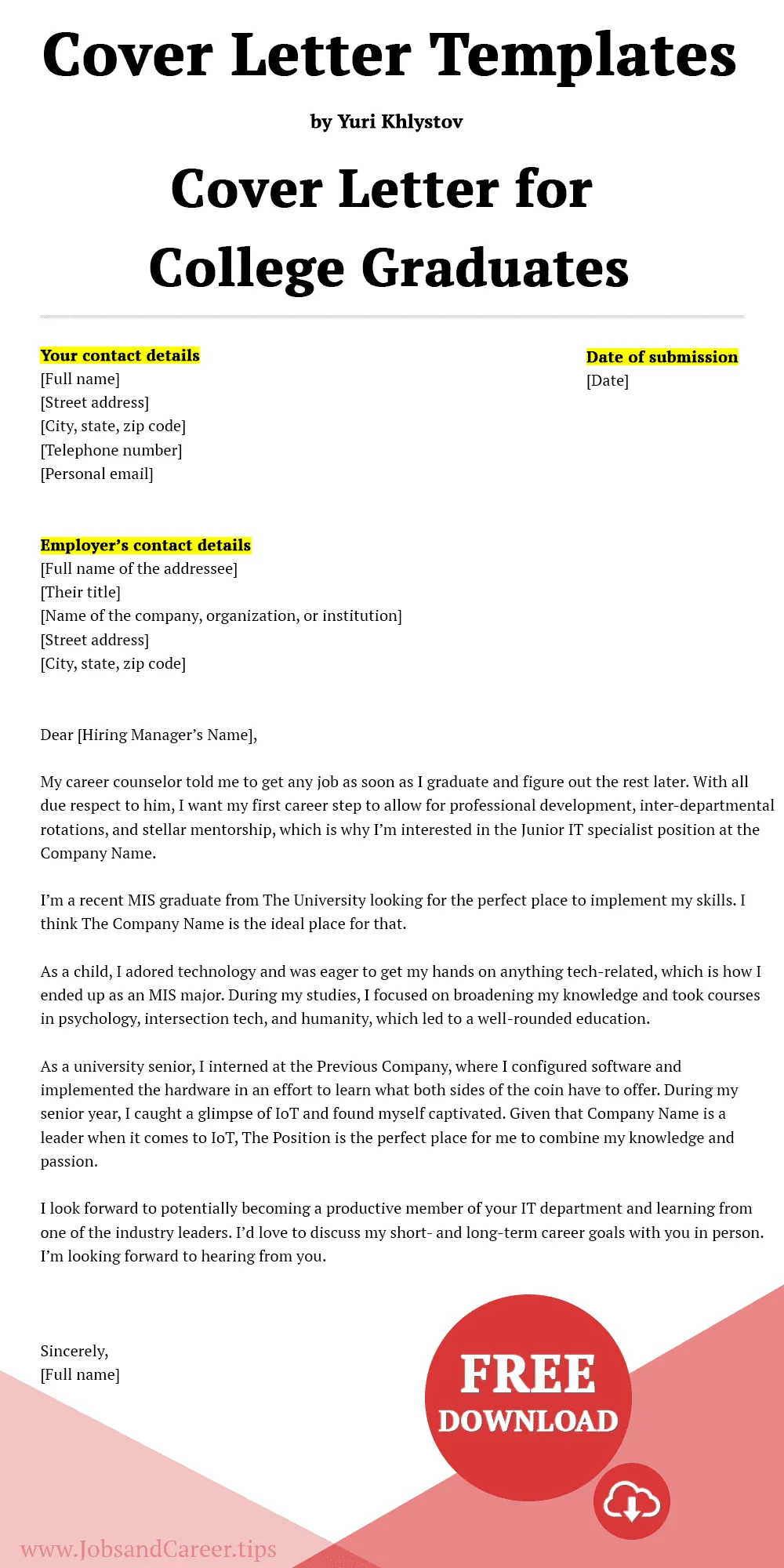Essential Tips for College Job Cover Letters
A well-crafted college job cover letter is your first impression on a potential employer. It provides an opportunity to showcase your personality, skills, and qualifications beyond what’s listed on your resume. In a competitive job market, a strong cover letter can significantly increase your chances of securing an interview. This guide will provide you with essential tips to write a compelling cover letter that grabs the reader’s attention and highlights your suitability for the role. By following these guidelines, you can create a cover letter that reflects your unique value proposition and helps you stand out from other applicants. Remember that the goal is not just to list your qualifications but to tell a story that persuades the employer to see you as the ideal candidate. A successful cover letter is not merely a formality, it’s a critical tool in your job search arsenal.
Highlight Your Academic Achievements
As a college student or recent graduate, your academic background is one of your primary selling points. Highlighting your achievements demonstrates your dedication, work ethic, and knowledge base. This section explores how to effectively showcase your academic accomplishments in your cover letter, making you a more attractive candidate for college jobs. Remember, employers often seek candidates with a strong academic foundation, viewing this as an indicator of future success in their organization. Focus on the elements that most directly relate to the job you are applying for, thus demonstrating a clear alignment between your academic pursuits and the requirements of the position. Don’t be afraid to quantify your achievements with numbers or specific examples to add more weight to your claims.
Showcase Relevant Coursework
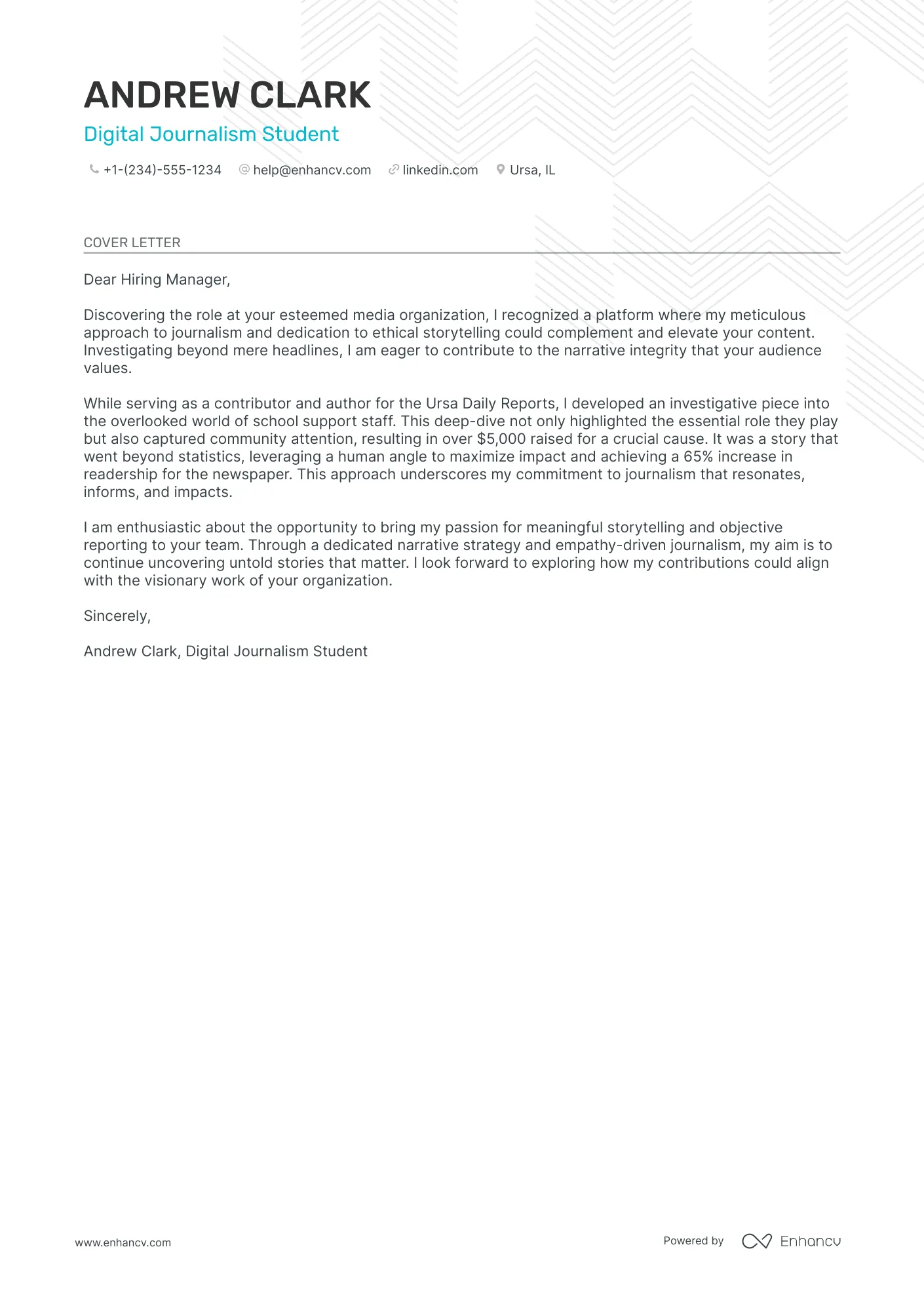
Mentioning specific courses that align with the job requirements is a great way to demonstrate your preparedness. This shows employers that you have acquired specific knowledge and skills directly applicable to the role. Rather than listing every course you’ve taken, select the ones that provide a direct link to the job description. Briefly explain the key skills or projects from these courses that make you a strong fit for the position. For instance, if you’re applying for a marketing internship, highlight relevant coursework in marketing principles, digital marketing, or consumer behavior. The goal is to show that your academic background has equipped you with practical knowledge and abilities relevant to the job’s demands.
Emphasize GPA and Honors
Including your GPA and any academic honors, such as Dean’s List, scholarships, or awards, can set you apart from other candidates. A high GPA indicates your commitment to academic excellence and your ability to handle challenging coursework. If your GPA is strong, consider including it in your cover letter. If your GPA isn’t as high, you can still mention relevant honors, such as scholarships or awards. These accolades demonstrate your achievements and the recognition you’ve received for your academic performance. Be sure to mention any projects that you worked on to achieve these achievements, and how you plan to use your academic expertise for the role.
Demonstrate Skills and Abilities
Beyond academics, employers seek candidates with a diverse skill set. Your cover letter is the perfect place to showcase your abilities, both hard and soft. This section provides insights into how to effectively present your skills and abilities, making them relevant to the specific job requirements. By clearly articulating your skills, you demonstrate to the employer that you have the necessary capabilities to excel in the role. Focus on skills that align directly with the job description and provide specific examples of how you’ve used these skills in past experiences. Demonstrating your skill set is a key step towards impressing the recruiter and setting yourself apart from the competition.
Communication and Interpersonal Skills
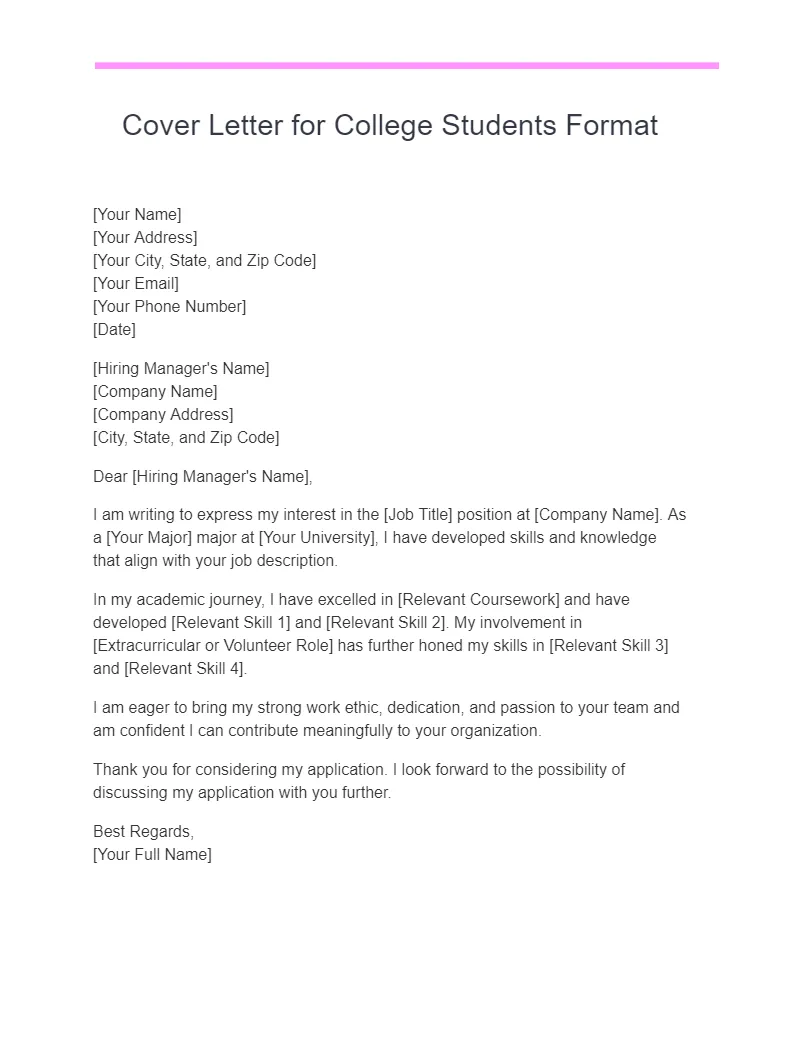
Effective communication and interpersonal skills are highly valued in almost every job. In your cover letter, showcase your ability to communicate clearly, both verbally and in writing, and your ability to work well with others. Provide examples of how you’ve used these skills in group projects, leadership roles, or customer service positions. Mention your experience in resolving conflicts, working collaboratively, and adapting your communication style to different audiences. For example, describe your experience in public speaking, presentations, or writing reports. The goal is to provide tangible evidence that you can effectively interact with colleagues, clients, and supervisors.
Technical Skills and Software Proficiency
Many jobs require proficiency in specific software or technical skills. If you have relevant technical abilities, make sure to include them in your cover letter. Specify the software you’re proficient in, such as Microsoft Office Suite, specific programming languages, design software, or data analysis tools. Be specific and mention the level of proficiency you have. If you have certifications or training related to these skills, include them as well. For example, if you’re applying for a data analysis role, highlight your experience with tools like Python, R, or Excel. Emphasize your ability to quickly learn and adapt to new technologies and how these skills align with the job requirements.
Tailor Your Cover Letter to Each Job
One of the biggest mistakes job seekers make is sending generic cover letters. To make a strong impression, your cover letter must be tailored to each specific job you’re applying for. This section emphasizes the importance of customizing your letter to align with the requirements and expectations of each role and employer. It’s not enough to simply change the job title; you need to show how your skills and experiences align with the specific needs of the position. Tailoring your cover letter requires research, attention to detail, and a clear understanding of what the employer is looking for. This extra effort will greatly increase your chances of getting noticed and landing an interview.
Research the Employer and the Role
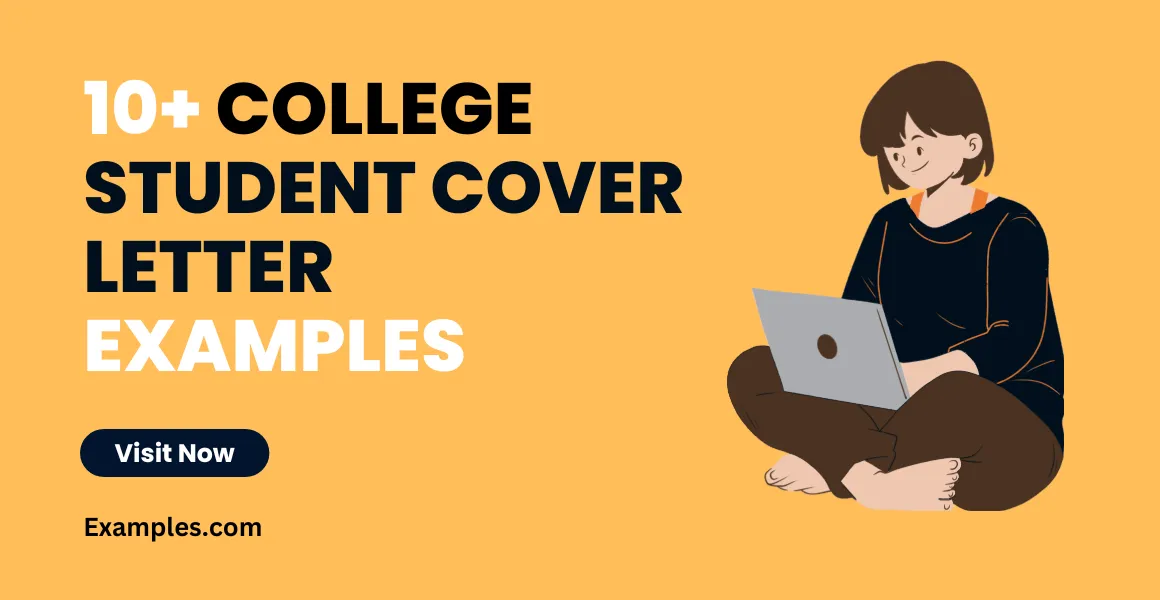
Before writing your cover letter, research the employer and the job description thoroughly. Understand the company’s mission, values, and culture. Look into their recent projects, news, and initiatives. Read the job description carefully, paying close attention to the required skills, responsibilities, and qualifications. Understanding the company’s needs and priorities will help you tailor your letter to address specific requirements. Visit their website, browse their social media profiles, and read reviews. This research will enable you to write a targeted and relevant cover letter that demonstrates your genuine interest and understanding of the role and the company. By demonstrating that you have done your homework, you showcase your genuine enthusiasm.
Customize Your Letter for Each Application
Once you understand the job and the employer, customize your cover letter to reflect this knowledge. Use the job description as your guide. Identify the key skills and qualifications the employer is seeking and provide specific examples of how your experiences align with those requirements. Modify the language and tone to match the company culture. Address specific needs or projects mentioned in the job description. Show the hiring manager why you’re a good fit for this specific role and this specific company, not just any role or company. Ensure that you include relevant keywords from the job description and use them naturally throughout your letter. Proofread the cover letter to ensure there are no typos or grammatical errors. By personalizing your letter, you highlight your understanding of the role, and demonstrate your genuine interest in the opportunity.
Format and Presentation for Impact
The format and presentation of your cover letter are just as important as the content. A well-formatted letter is easy to read and makes a positive first impression. This section will guide you through choosing the right font, formatting the layout, and ensuring your letter looks professional and polished. A clean and professional format shows that you pay attention to detail and respect the reader’s time. The overall appearance of your cover letter sends a message about your professionalism and your ability to present information clearly. By paying attention to the format, you can make your cover letter more appealing and increase your chances of making a positive impression on the hiring manager.
Choose a Professional Font and Format
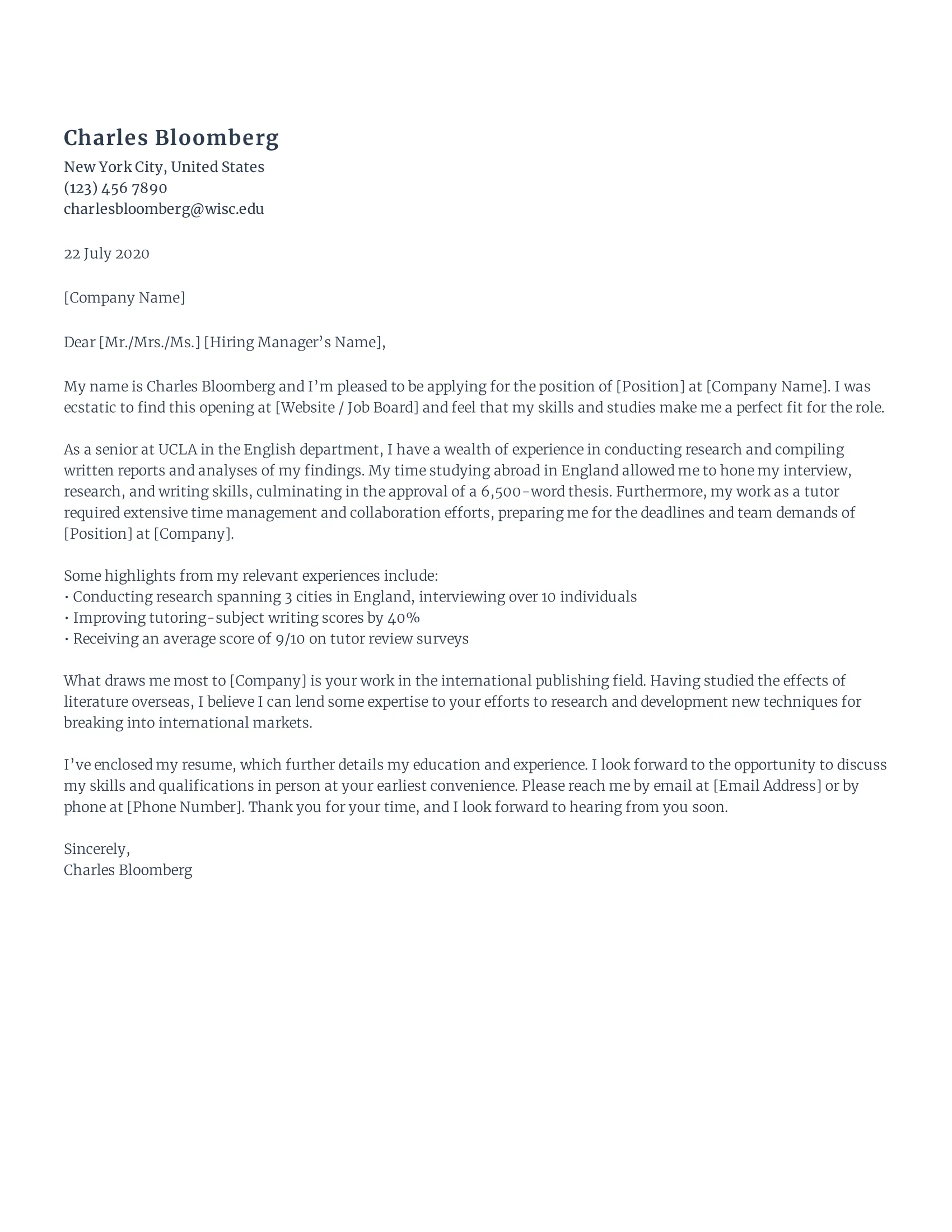
Select a professional and easy-to-read font, such as Times New Roman, Arial, or Calibri. Keep the font size between 10 and 12 points. Use a standard format with one-inch margins on all sides. Align your text to the left, and avoid using justified text, which can make the letter harder to read. Include your contact information at the top of the letter, followed by the date and the employer’s contact information. Use clear, concise paragraphs with appropriate spacing between them. Make sure there are no spelling mistakes and ensure the document is free of formatting errors. A well-formatted cover letter looks clean, organized, and easy on the eyes. This also reflects your attention to detail and commitment to presenting yourself professionally.
Proofread for Errors and Accuracy
Proofreading your cover letter is essential to catch any errors that could damage your chances. Typos, grammatical errors, and formatting inconsistencies can make your cover letter look unprofessional. Before submitting, carefully read your cover letter multiple times. Use a spell-checker and grammar-checker tool to catch any obvious mistakes. Ask a friend, professor, or career counselor to review your letter. A second pair of eyes can often spot errors you might have missed. Ensure that all contact information is accurate and that the name and title of the hiring manager are correct. Proofreading is a critical step in ensuring your cover letter is polished and professional. The goal is to eliminate any distractions that might detract from your message and prevent you from showcasing your best self.
Address Common Mistakes
Many cover letters fail because they contain common mistakes that can undermine your application. Recognizing and addressing these mistakes can significantly improve your chances of success. This section covers some of the most frequent pitfalls in cover letter writing and offers advice on how to avoid them. By learning from common errors, you can ensure that your cover letter effectively showcases your qualifications and captures the hiring manager’s attention. The goal is to present a polished, error-free letter that reflects your professionalism and makes you stand out from the competition. By avoiding these pitfalls, you significantly improve your chances of making a positive impression on the hiring manager.
Avoid Generic Cover Letters
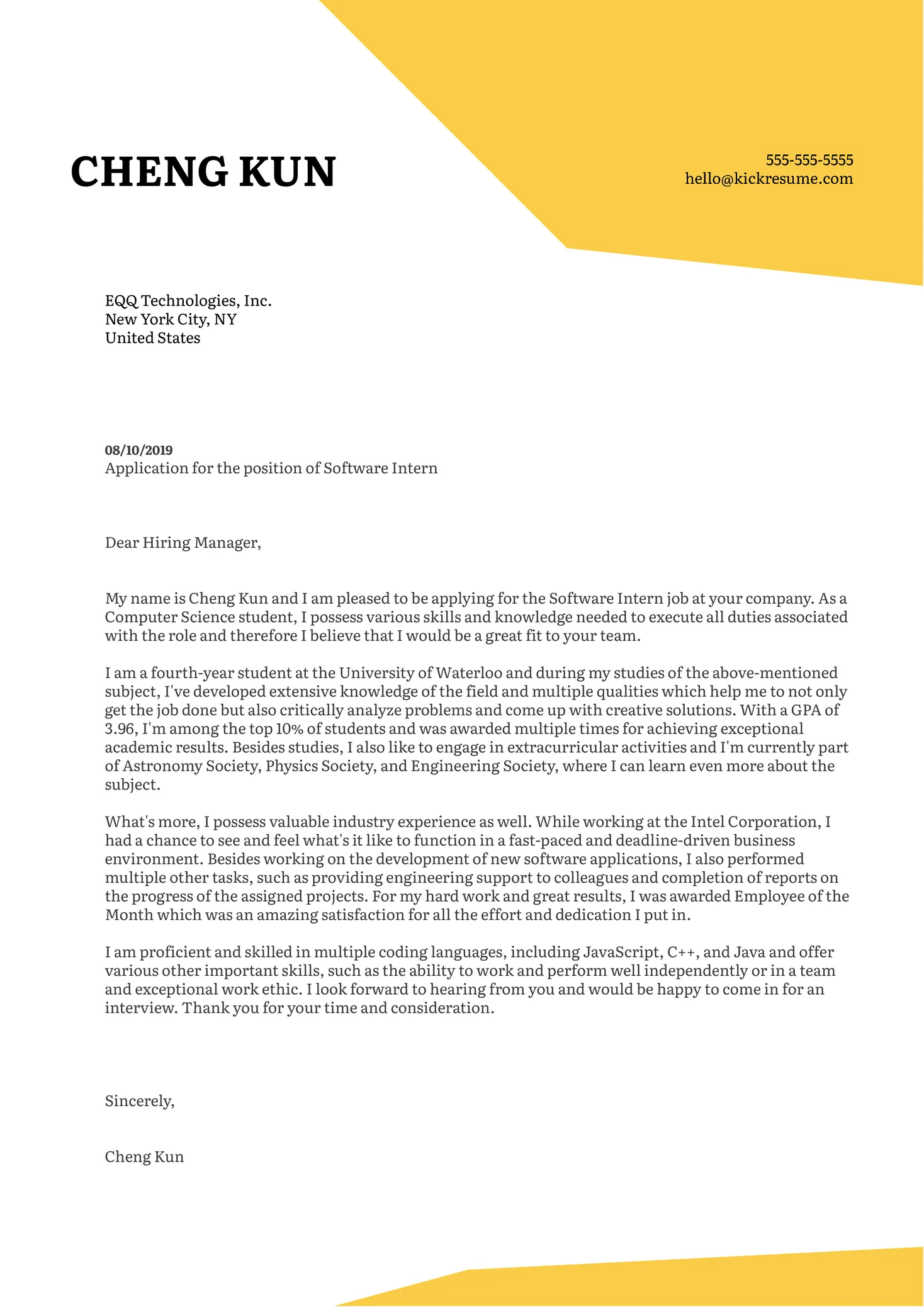
Generic cover letters are one of the biggest mistakes in job applications. A generic cover letter is one that is not tailored to the specific job or company. It often uses broad, vague language and fails to highlight your unique qualifications. These letters often sound impersonal and do not show genuine interest in the role or the employer. Customize your cover letter to align with the specific job description and company needs. Show the hiring manager that you have taken the time to understand their needs and that you are the right fit for the role. Demonstrate your enthusiasm by mentioning specific projects or initiatives by the company or role you are applying for. This will help you stand out as an applicant and increase your chance of making a strong impact.
Don’t Just Repeat Your Resume
Your cover letter is not meant to be a summary of your resume. Instead, it is an opportunity to expand on your skills and experiences and provide context. Simply repeating what’s already in your resume won’t impress the hiring manager. Use the cover letter to tell a story, demonstrate your personality, and showcase your unique qualifications. Highlight experiences and skills that are most relevant to the job. Provide specific examples of your accomplishments and explain how your skills and experiences align with the job requirements. Provide a narrative that explains why you are the ideal candidate for the position, rather than just a list of your qualifications. Use the cover letter to provide context, show your enthusiasm, and express your interest in the company and the role.
The Importance of a Strong Closing
The closing of your cover letter is your final chance to make an impression. A strong closing should reiterate your interest in the job, express your enthusiasm, and provide a clear call to action. This section provides advice on how to effectively conclude your cover letter, leaving a lasting positive impression on the hiring manager. A good closing sums up your message and encourages the hiring manager to take the next step. By ending your cover letter on a positive note, you increase your chances of getting noticed and securing an interview. Your closing should be as carefully crafted as the rest of your letter, as it is the last impression that the recruiter will have of you.
Express Your Enthusiasm
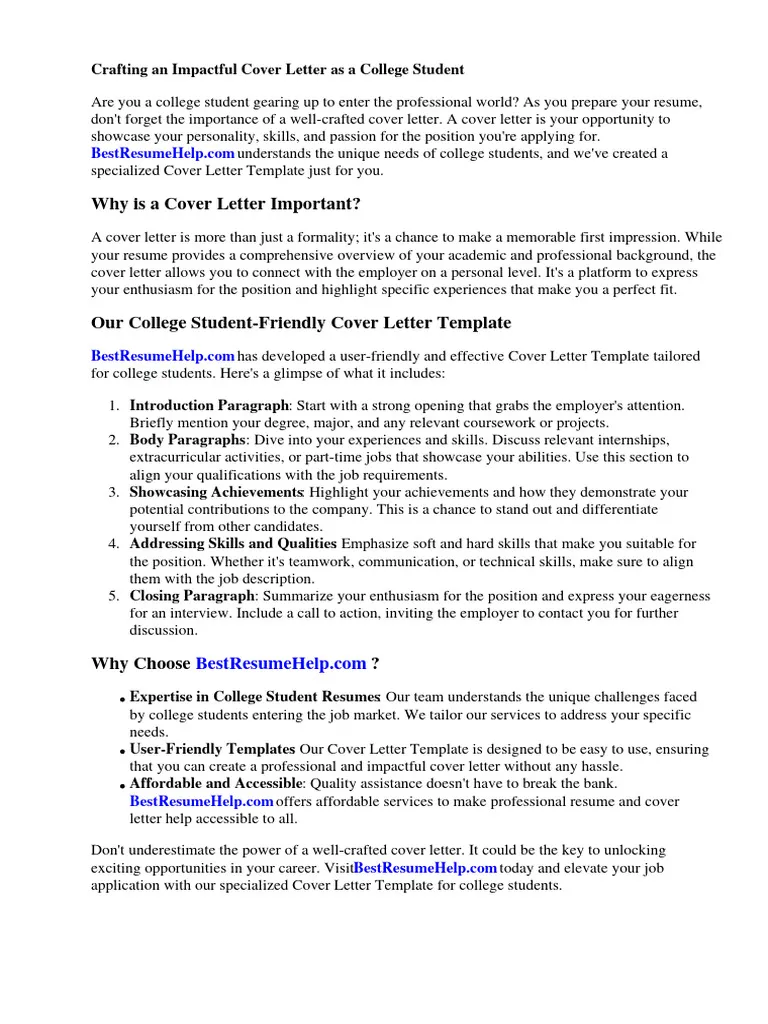
End your cover letter by expressing your genuine enthusiasm for the opportunity. Show the hiring manager that you are excited about the job and the company. Use specific language to convey your interest. Mention something you admire about the company or the role. Highlight your excitement for the responsibilities of the role and your expectations for the organization. Express your passion and convey that you are eager to contribute to the team. Demonstrate to the hiring manager your commitment to the company and the role. A show of enthusiasm can make the difference between getting an interview and being passed over.
Include a Clear Call to Action
Always end your cover letter with a clear call to action. Tell the hiring manager what you want them to do next. For example, you can express your eagerness to discuss your qualifications further and request an interview. Provide your contact information. Make it easy for the hiring manager to reach you. Keep your request simple and direct. Thank the hiring manager for their time and consideration. By including a clear call to action, you guide the hiring manager and increase the likelihood of a positive response. A strong closing shows confidence and professionalism and provides the hiring manager with a reason to take the next step, which is an interview.
